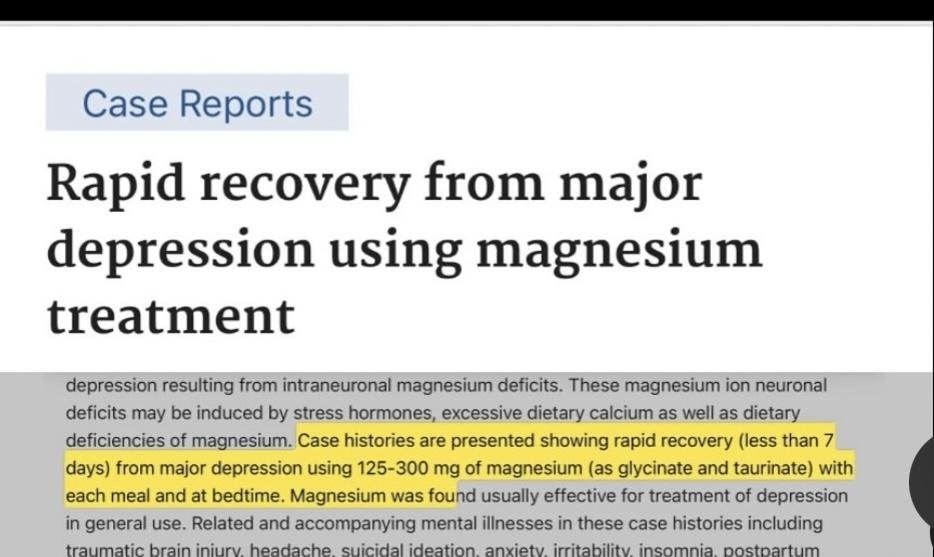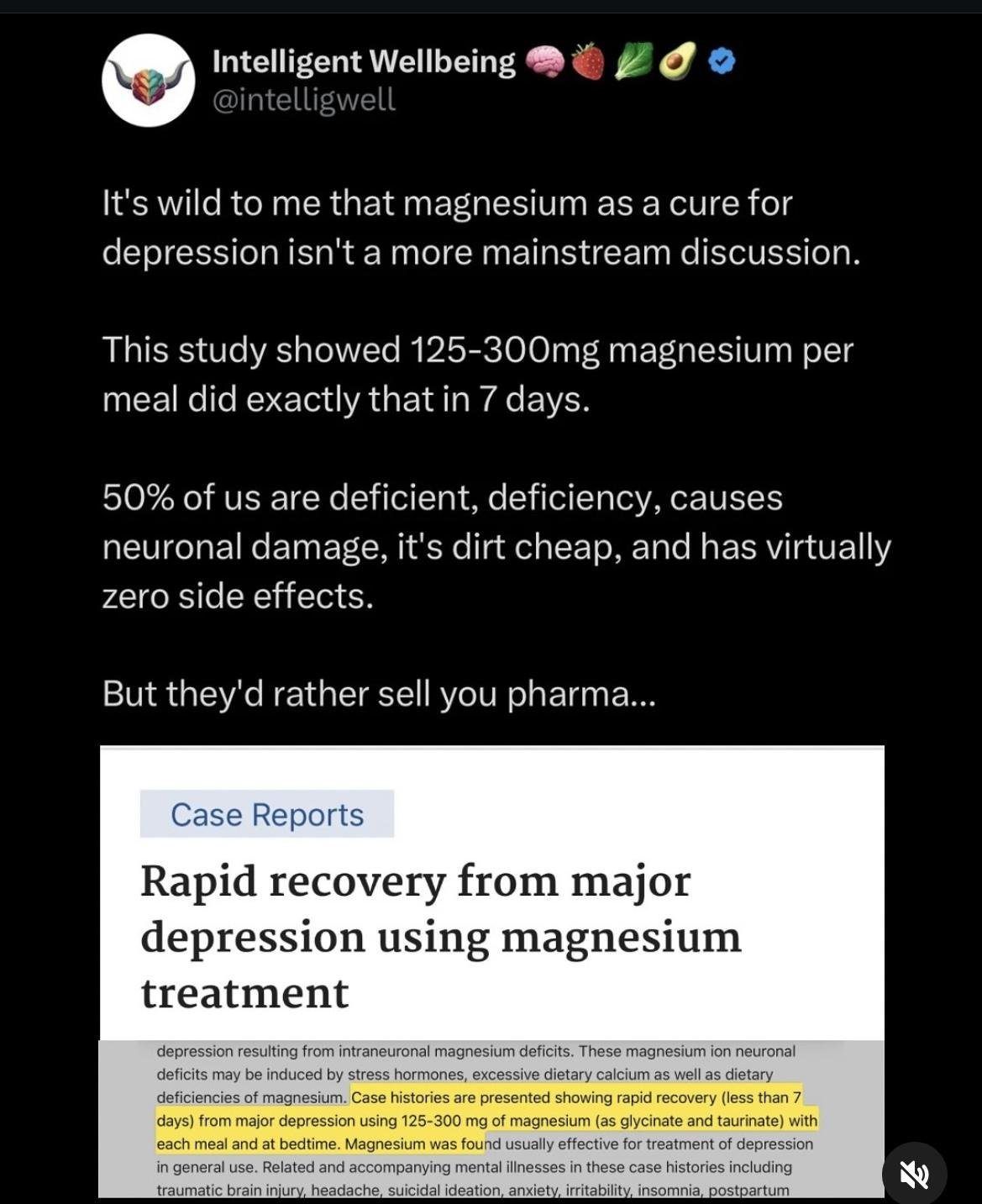Low thyroid, cholesterol, vitamin D/K linked to depression and suicide
- This topic has 7 replies, 4 voices, and was last updated 3 months, 3 weeks ago by
 Cari.
Cari.
-
AuthorPosts
-
June 11, 2024 at 7:47 pm #2500
Haidut posted on his blog at http://www.haidut.me.
“One of the few studies out there that dared to touch the “metabolic theory” of depression. Namely, the link between low thyroid and depression has been suspected for decades and, in fact, desiccated thyroid or T3 therapy had been tried with great success on depressive cases before the 1960s. As such, the findings that low T4 levels are associated with depression/suicide is not really novel, but it still good to see studies draw attention to the thyroid connection as that may push medicine to start (re)considering mental health issues as metabolic in origin. Another finding of the study is both “surprising” and worrying at the same time. Namely, low cholesterol was also associated with depression/suicide and that finding contradicts directly the official guidelines on cholesterol, which currently state that the lower (total or “bad”) cholesterol is, the better the health of the patient not only in regards to cardiovascular issues but also mental health. If the finding of the study gets corroborated by other studies, it would mean that the current “pandemic” of prescribing statins to even minors is directly contributing to the mental health crisis that mainstream media keeps screaming about. Finally, the link between low vitamin D/K is also worth mentioning since that connection is relatively new and while medicine has started to admit that low vitamin D is implicated in mental illness, vitamin K is not even on the radar in that regard. However, considering that vitamin K is a quinone and a strong pro-metabolic substance, this connection once again draw attention to the metabolic origins of mental illness, or at least in regards to severe depression. This role of vitamin K as a pro-metabolic substance is further corroborated by the positive association between vitamin K and T4. Now, if only a research group out there would be brave enough to do an intervention trial with thyroid, vitamin D/K or (God forbid!) increased dietary cholesterol, we may get closer to solving a lot of mental health issues while simultaneously exposing both the absurdity of the current theories of mental illness as well as the role of pharma drugs (e.g. statins, PPI inhibitors, etc) in contributing directly to the mental health crisis.
https://doi.org/10.2147/jir.s463204
“…A recent research published in the Journal of Inflammation Research uncovered a potential link between low levels of vitamin K and increased risk of depression and suicidal behavior. Despite the limited epidemiological studies in this area, this new study highlighted strong evidence which suggests vitamin K deficiency could be a significant biological risk factor for these mental health issues. This retrospective cross-sectional analysis involved a total of 295 participants and divided into two groups, where 146 individuals had a history of suicide attempts and 149 individuals had no history of suicide attempts. This research measured various biological markers, including thyroid hormones, lipid profiles, inflammatory cytokines and vitamins to explore the potential associations with depression and suicidal behavior. The results found that the participants who had attempted suicide expressed markedly lower levels of FT4 (free thyroxine), total cholesterol (TC), vitamin D and vitamin K. Also, these individuals showed increased levels of C-reactive protein (CRP)which indicates inflammation. Among the different variables examined, vitamin K emerged as a strong predictor of suicidal behavior in depressed patients. The research reported a sensitivity of 0.842 and a specificity of 0.715 for vitamin K levels in diagnosing the suicidal attempts among the depressed individuals. This means that vitamin K levels were accurate in identifying the individuals at risk for suicidal behavior in over 80% of cases. Correlation analysis further revealed that vitamin K levels were significantly and positively related to several other biomarkers, including FT4, total cholesterol, LDL cholesterol and small dense LDL cholesterol. These findings suggest a broader interaction between vitamin K and other physiological processes that may influence mental health. The multivariate analysis illuminated the importance of vitamin K as a predictive factor for suicidal attempts in patients with depression. Also, the study found that (low) serum vitamin K levels significantly predicted suicidal behavior (Odds Ratio = 0.614, P = 0.004, 95% Confidence Interval 0.153–0.904). The outcomes observed a negative correlation between vitamin K levels and suicidal attempts when analyzing the data for FT4, CRP and vitamin D. This indicates that lower levels of vitamin K are associated with a higher risk of suicide attempts in the context of other health markers. The findings of this study suggest that monitoring and managing vitamin K levels could play a crucial role in the prevention and treatment of depression and suicidal behavior. Given the significant diagnostic value of vitamin K, clinicians might consider incorporating vitamin K assessments into routine evaluations for patients at risk of depression and suicidal tendencies.”
June 12, 2024 at 3:04 am #2502An interesting post. I am wondering if Vitamin K’s ability to lower endotoxin is the way it can attenuate suicidal tendencies?
Lower cholesterol levels are indicative of lower health status. One of the observations of researchers studying the prescription of statins has noted that levels of 220 to 240 are found in people with the lowest levels of mortality. Whereas levels at 160 and lower were indicative of higher mortality and seen in cancer patients.
In seeing improved results for depression by using both sunlight, and magnesium with magnesium being a co factor for the conversion to the active form of Vitamin D, perhaps these three (cholesterol, sunlight, magnesium) can attest there therapeutic attributes to the final product of their combined optimal levels that being Vitamin D.June 26, 2024 at 1:28 pm #2649June 26, 2024 at 10:59 pm #2657Anonymous
On the UK healthcare service website it says craving fatty or salty foods is linked to depression
we get told not to eat saturated fat or this or that because its bad for us
and yet it might be just what people need. and its a simple solution
Do they want us on antidepressants? Trying those was the worst thing in my life. Never have I felt so messed up from all the serotonin. Truly felt like poisoning.
that upsets me that theres a simple way to fix these problems but we instead go the hard, forceful way… very authoritarian at its core…
July 28, 2024 at 3:15 am #2912I thought this was adorable! A Canadian couple adopted pet rats from an animal shelter. They found that rat study Ray always spoke about, having a fun enriching environment brought so many health benefits. They then built them tiny cars and taught them how to drive them 🙂 Sooo cute 🥰
August 24, 2024 at 7:05 pm #3191In a reverse study, Harvard found that the thyroid hormone drives the desire to explore. Was Ray ever right again and again?!?!?!
https://www.sciencedaily.com/releases/2024/08/240822125859.htm
November 22, 2024 at 7:31 pm #4037

 March 14, 2025 at 7:53 pm #4575
March 14, 2025 at 7:53 pm #4575“The high levels of copper, iron and lead which are found in many people with mental problems may be secondary to a hormone disturbance.”
– Nutrition For Women
-
AuthorPosts
- You must be logged in to reply to this topic.
Author
Cari